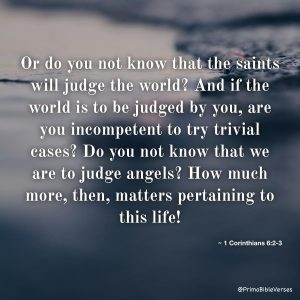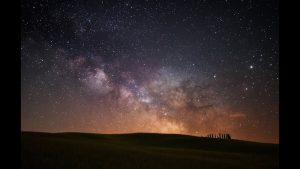
Shownotes
Welcome to Day 1592 of our Wisdom-Trek, and thank you for joining me.
I am Guthrie Chamberlain, Your Guide to Wisdom
Ruling Over Angels – Worldview Wednesday
Welcome to Wisdom-Trek with Gramps! Wisdom is the final frontier in gaining true knowledge. Our mission is to create a legacy of wisdom, seek out discernment and insights, and boldly grow where few have chosen to grow before. Hello, my friend; this is Gramps; thanks for coming along on our journey to increase Wisdom and Create a Living Legacy. Today is Day 1592 of our Trek, and it is Worldview Wednesday. Creating a Biblical Worldview is essential to have a proper perspective on today’s current events. To establish a Biblical Worldview, you must have a proper understanding of God and His Word. This week, we will continue reviewing the book from Dr. Michael S Heiser titled “Supernatural.” The book is an abbreviated version of his more comprehensive book, “The Unseen Realm.” I highly recommend both of these books. Creating a Biblical Worldview based on how the Old and New Testaments connect with God’s overall plan for humanity is essential. This book review will help us understand what the Bible teaches about the unseen world, and why it matters.
Ruling Over Angels
It’s crucial to our faith that we understand who we are as Christians. We are the sons and daughters of God, a re-fashioned divine council that already participates in our Father’s kingdom. But there’s more to it than that. Yes, we are God’s family council—but to what end?
While we are already in the kingdom (Colossians 1:13), we have not yet seen the full unveiling of that kingdom—we have not seen the world become Eden. This “already, but not yet” paradox runs throughout the Bible in many ways. In this chapter, I want to give you a glimpse of the “not yet” that answers the question “To what end?”
Kingdom Participation Now
Our participation in God’s kingdom isn’t predetermined, in this sense: We are not mere robots performing functions programmed for us. That violates the whole idea of being God’s imager, his representative. We were created to be like him. He is free. If we do not have genuine freedom, we cannot be like him—by definition, we would not be like him. We are free to obey and worship, or rebel and indulge ourselves. We will reap what we sow. Our sowing is not programmed.
But God is greater than we are. He had a plan, and it will come to pass. Its success neither depends on nor is forced to adapt to human freedom. We cannot undermine it—nor can the divine beings who are also free to choose.
Think about the heavenly council meeting we reviewed in chapter 1 covering “Believing the Bible.” I asked whether you believed the things the Bible says, and then took you to a meeting of God and his heavenly council in 1 Kings 22. God had decreed (and so it must happen) that it was time for wicked Ahab to die. But God then let the spirit beings in his council decide how to accomplish that (1 Kings 22:19–23).
Predestination and freedom work hand-in-hand in God’s kingdom rule. His purposes will never be overturned or halted. He is able to take sin and rebellion and still accomplish—through other free representatives—what he desires. As C. S. Lewis once said of God (in the book Perelandra), “Whatever you do, He will make good of it. But not the good He had prepared for you if you had obeyed him.”
To what end, here and now, are we God’s family council? To participate with God in liberating people from darkness. To show people how to live justly and with mercy—imitating God for those who need the illustration. To defend and spread truth about the true God in a hostile world under the dominion of envious divine intelligences. To enjoy life as God intended it.
All these callings are training for the kingdom to come. As Paul asked the Corinthians, who had lost a divine perspective while bickering about the affairs of this world in 1 Corinthians 6:3. Don’t you realize that we will judge angels? So you should surely be able to resolve ordinary disputes in this life. He was serious. Paul was getting at something specific in that statement.

Set over the Nations
The final form of the kingdom is yet to come. When it does, the powers of darkness will be defeated. The demonic gods will permanently lose their dominion over the nations, replaced by God’s glorified human family and council. Look at what Jesus said in the book of Revelation 2:25-28:
Hold tightly to what you have until I come. To all who are victorious, who obey me to the very end. To them, I will give authority over all the nations.
They will rule the nations with an iron rod and smash them like clay pots. They will have the same authority I received from my Father, and I will also give them the morning star!
When Jesus returns to take his throne on a new earth—a new, global Eden—he will share it with his siblings. The principalities and powers will be thrown off their thrones, and we will take their place. Their dominions won’t be given to angels faithful to God—we will outrank the angels in God’s final Edenic kingdom. Jesus will put his human brothers and sisters in charge.
Are you puzzled by that final statement in Revelation 2:28? “I will also give them the morning star”? It does sound odd, but it speaks of our joint rule with Jesus over the nations after the evil powers are dealt with. “Morning star” is used to describe divine beings (Job 38:7). It is also a messianic term. Since the Messiah is divine, “star language” was sometimes used to describe his coming reign. Numbers 24:17 says, “A star will go out from Jacob, and a scepter will rise from Israel.” In the book of Revelation, Jesus describes himself this way: “I am the root and the descendant of David, the bright morning star” (Rev. 22:16).
The wording of Revelation 2:25–28 is powerful. Not only does Jesus say he is the messianic morning star, but he gives us the morning star—he shares his messianic rule with us. Revelation 3:20–21 takes it one step further, so believers don’t miss the point:
“Look! I stand at the door and knock. If you hear my voice and open the door, I will come in, and we will share a meal together as friends. Those who are victorious will sit with me on my throne, just as I was victorious and sat with my Father on his throne.
To what end have we been made partakers of the divine nature? Why does Jesus introduce us in the council as his brothers and sisters? So that God can give us the dominion over the earth, he originally desired. Heaven will return to earth in a new, global Eden.
Eternal Eden
From the first chapters of Genesis, Eden was a focal point of God’s plan for man, the rest of his divine imagers, and his kingdom. So it’s neither a surprise nor a coincidence that the last chapter of the book of Revelation takes us back to Eden in Revelation 22:1–5:
Then the angel showed me a river with the water of life, clear as crystal, flowing from the throne of God and of the Lamb. It flowed down the center of the main street. On each side of the river grew a tree of life, bearing twelve crops of fruit, with a fresh crop each month. The leaves were used for medicine to heal the nations. No longer will there be a curse upon anything. For the throne of God and of the Lamb will be there, and his servants will worship him. And they will see his face, and his name will be written on their foreheads. And there will be no night there—no need for lamps or sun—for the Lord God will shine on them. And they will reign forever and ever.
Did you notice that the Tree of Life heals the nations? The nations, once dominated by principalities and powers, will be ruled by the new sons and daughters of God—you and me.
This wasn’t the first time the Tree of Life showed up in Revelation. Speaking to those who believe unto the end, Jesus said in Revelation 2:7, 11, “I will grant [them] to eat of the tree of life, which is in the paradise of God … [They] will not be hurt by the second death.” The reference to the Tree of Life is clearly Edenic. The first death refers to physical death, brought by Adam’s sin and expulsion from Eden. Since all humans, believers and unbelievers alike, are resurrected before judgment, the second death is the final judgment. (Revelation 21:8). Those who continue to live with God in a new Eden do not suffer the second death.

Why This Matters
Many Christians have an inadequate view of the afterlife. Scripture doesn’t tell us everything about what it will be like, but some aspects are certain. We aren’t going to be playing harps or singing endlessly while floating around on clouds. We won’t just be sitting on celestial couches chatting with departed loved ones or well-known believers from the past.
Instead, we will be living the life Eden offered—we will be busy enjoying and caring for what God has made, side by side with the divine beings who remained loyal to him. Heaven and earth will no longer be separate places.
Knowing our destiny ought to mold our thinking in the here and now. As Paul said in 1 Corinthians 2:9,
That is what the Scriptures mean when they say,
“No eye has seen, no ear has heard,
and no mind has imagined
what God has prepared
for those who love him.”
Knowing this spectacular, glorious outcome helps keep our present circumstances in perspective. After Paul wrote the words we just read, he said this in 2 Corinthians 1:3-9: Blessed be the God and Father of our Lord Jesus Christ, the Father of mercies and God of all comfort, who comforts us in all our affliction.… For we do not want you to be unaware, brothers, of the affliction we experienced in Asia. For we were so utterly burdened beyond our strength that we despaired of life itself. Indeed, we felt that we had received the sentence of death. But that was to make us rely not on ourselves but on God who raises the dead. God can preserve us in life. But even in death, we will be raised to sit with Jesus on his throne (Revelation 3:21).
We either live with our destination in view, or we don’t. Our awareness of our destiny ought to alter our behavior. If you knew you’d someday be sharing an apartment or working in the same office as that person you criticize, belittle, and otherwise disdain, you’d invest a little more effort into being a peacemaker, an encourager, and perhaps even a friend to that person. How is it that we treat fellow believers so poorly, then? How is it that we don’t put as much energy into moving the unbeliever toward Jesus as we do into engaging with him or her as an enemy? We either have eternity in view, or we don’t.
How much rule does Jesus need to share with you to keep you happy? The question might seem odd, since any such gift from Jesus would be wonderful. Why, then, do we vie with believers for status? Why do we bicker with each other for advantage, attention, and personal gain? Are we no better than the Corinthians, whom Paul had to remind of their destiny? We’re either content to rule and reign with him, or we’re not. Christian, it’s time to live as though you know who you are and know the plans God has for you.[1]
That will finish our study for this week’s worldview Wednesday. Join us again next week we will conclude our book review of Supernatural in our quest to build our Biblical Worldview. Tomorrow we will ponder another bit of wisdom from Gramps. So encourage your friends and family to join us and then come along with us tomorrow for another day of ‘Wisdom-Trek, Creating a Legacy.’

If you would like to listen to any of our past 1591 treks or read the Wisdom Journal, they are available at Wisdom-Trek.com. I encourage you to subscribe to Wisdom-Trek on your favorite podcast player so that each day’s trek will be downloaded automatically.
Thank you so much for allowing me to be your guide, mentor, and, most of all, your friend as I serve you through this Wisdom-Trek podcast and journal.
As we take this Trek together, let us always:
- Live Abundantly (Fully)
- Love Unconditionally
- Listen Intentionally
- Learn Continuously
- Lend to others Generously
- Lead with Integrity
- Leave a Living Legacy Each Day
I am Guthrie Chamberlain….reminding you to ’Keep Moving Forward,’ ‘Enjoy your Journey,’ and ‘Create a Great Day…Everyday’! See you Tomorrow!
[1] Heiser, M. S. (2015). Supernatural: What the Bible Teaches about the Unseen World—And Why It Matters. (D. Lambert, Ed.) (pp. 155–162). Bellingham, WA: Lexham Press.